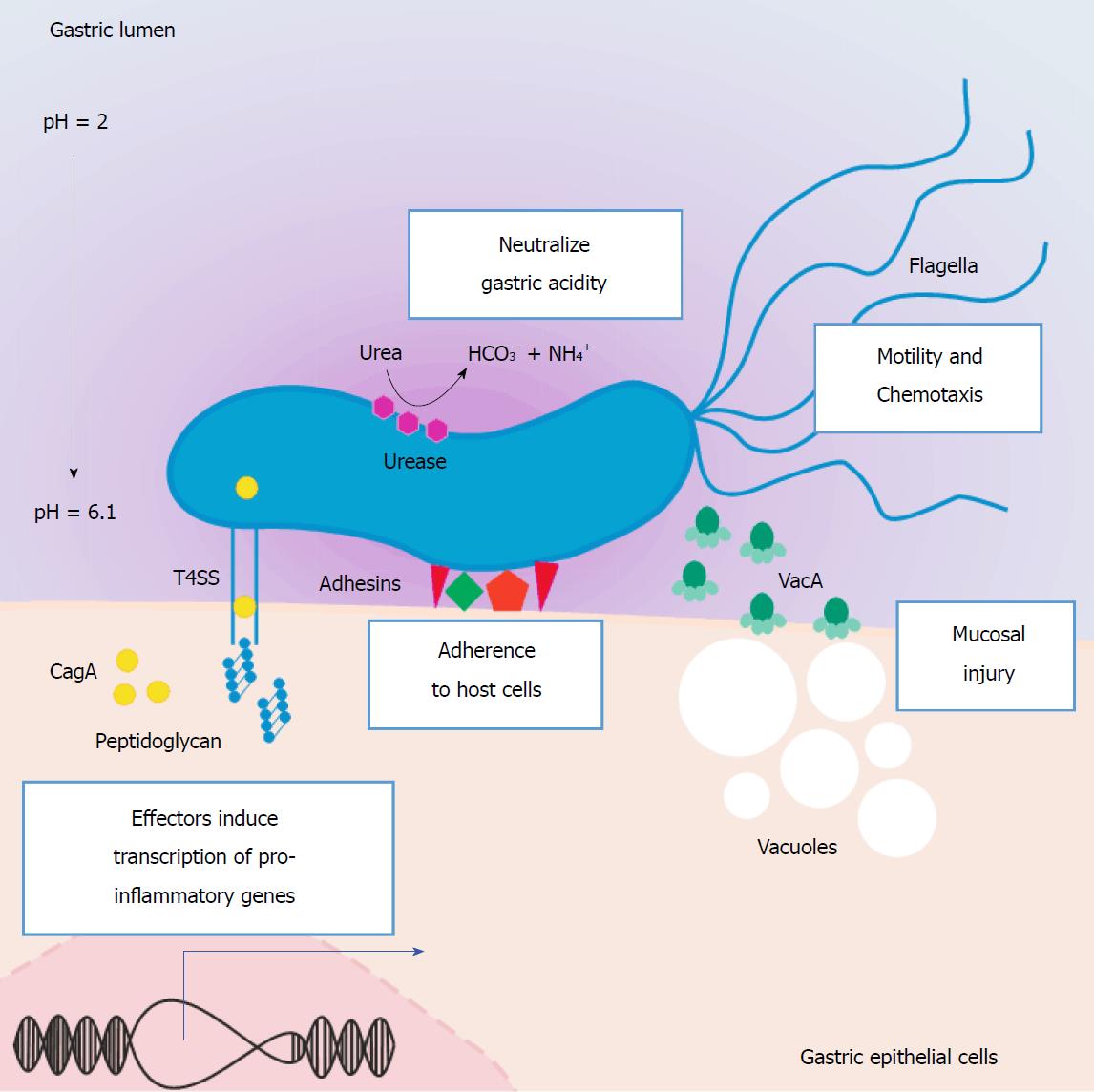Copyright
©The Author(s) 2018.
World J Gastrointest Oncol. Sep 15, 2018; 10(9): 231-243
Published online Sep 15, 2018. doi: 10.4251/wjgo.v10.i9.231
Published online Sep 15, 2018. doi: 10.4251/wjgo.v10.i9.231
Figure 1 Helicobacter pylori virulence factors associated with gastric pathogenic processes.
H. pylori is genetically highly variable, and some strains are more strongly associated with gastric pathologies, including GC. The most prominent are those that express the virulence factors VacA and Cag-PAI. VacA is a cytotoxic protein expressed by the polymorphic gene vacA that induces the formation of vacuoles, thus generating damage in the gastric epithelium. The Cag-PAI-positive strains (approximately 60%) possess a functional genetic region, which contains approximately 30 genes that code for proteins, that together make up a T4SS. The secretion system introduces a number of molecules, including the virulence factor CagA and peptidoglycans, into the cytoplasm of epithelial cells of the gastric mucosa. Once in the cytoplasm, CagA is phosphorylated, and this triggers downstream intracellular events, such as cytoskeletal rearrangement, alterations in cellular polarity, expression of inflammatory mediators, and activation of signaling pathways that promote cellular proliferation. The conversion of urea into ammonium and carbon dioxide by urease is essential to the survival H. pylori in the stomach. Flagella play an important role in the colonization of the gastric mucosa, as they produce differential motility depending on the pH of the stomach lumen and the concentration of compounds such as urea, thus enabling H. pylori bacteria to swim across the mucous layer towards the epithelial lining. Other less well-characterized virulence factors of H. pylori associated with gastric pathology are the adhesins, which include BabA, SabA, and OipA. Cag-PAI: Cag pathogenicity island; GC: Gastric cancer; H. pylori: Helicobacter pylori; T4SS: Type IV secretion system; VacA: Vacuolating cytotoxin A.
- Citation: Molina-Castro S, Ramírez-Mayorga V, Alpízar-Alpízar W. Priming the seed: Helicobacter pylori alters epithelial cell invasiveness in early gastric carcinogenesis. World J Gastrointest Oncol 2018; 10(9): 231-243
- URL: https://www.wjgnet.com/1948-5204/full/v10/i9/231.htm
- DOI: https://dx.doi.org/10.4251/wjgo.v10.i9.231









